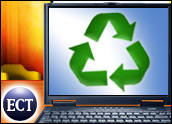
The winter holidays are over, and brittle Christmas trees and empty champagne bottles aren’t alone in many consumers’ trash heaps. There are also used computers, televisions, cell phones and other gizmos that have been replaced with fancier models.
Those piles may be somewhat larger than in recent years, thanks to the imminent U.S. government-mandated changeover from analog to digital television broadcasting. The switch, which is slated for February, has prompted many consumers to flock to retailers for new sets.
American households have, on average, about 24 consumer electronics products, according the Consumer Electronics Association.
Disposal of old units is a growing problem.
“I think it’s probably always been a problem and probably will continue to be one,” said Chris Whitley, a spokesperson for the Environmental Protection Agency’s Region 7 office in Kansas City, Kan.
Consumers smitten with their new HDTVs shouldn’t necessarily dismiss their old receivers, he told TechNewsWorld. “Just because the digital revolution has come along, it doesn’t render your old set obsolete. We’d encourage you to get a converter.”
If consumers feel the need to trash the old set, Whitley said, it’s important to do so properly.
“The means of recycling things such as television sets, video tubes, computer screens — things of that nature — varies widely depending on the locale,” he said, “but somewhere within a reasonable distance of where you live, there should be a recycling program. The big thing is, don’t put the old TV on the curb. There tends to be a host of dangerous metals in cathode ray tubes, and you just don’t want that stuff.”
Hazardous Substances
Among the hazardous substances in electronics devices: lead, found in cathode ray tubes; mercury, used to light flat-panel computer monitors and notebooks; cadmium, a component of rechargeable batteries; and brominated flame retardants, often found in plasstic cases and cables.
“Lead and phosphorous and other fun things is not something you want leeching into ground water,” Whitley said.
Mercury is the most vexing problem with discarded electronics, said Rob Enderle, principal with the Enderle Group.
“Mercury can enter ground water and make it into the food and water supply,” he told TechNewsWorld. It can cause “both brain defects, particularly in children, and … premature death.”
Lead, a common ingredient in solder, is another serious concern.
“Right now, according to the EPA, e-waste is the largest contributor of lead in municipal solid waste,” noted Enderle. “Cell phones, in particular, are becoming a problem, because they are introducing nickel and cadmium — both toxic — into this toxic mess. It’s actually very bad, because it remains vastly easier to toss this stuff out than to dispose of it responsibly.”
Each generation of new electronic toys and tools seems to add pressure to an already-widespread problem, Laura DiDio, principal analyst with ITIC, told TechNewsWorld.
It has almost reached a point of critical mass, especially with respect to televisions, she said.
“You get a new cell phone — most people are doing that every year or year-and-a-half,” she noted, “but you can turn the old one in at the cell phone store. But what do you do with these old TVs? It’s really a shame.”
The problem is not going unnoticed.
“Organizations like the Boy Scouts often have regional drives to collect these materials,” Enderle pointed out, “and folks can put them into boxes until one of those local drives hit their area. Most larger metropolitan areas have one or more recyclers, and generally you can drop the devices off there. If it is a PC, many of the branded PC vendors have PC disposal programs where you ship your old PC back to them for disposal.
“Generally, it is best to properly erase the hard drive or to assure that it will be shredded before sending a PC anyplace for disposal to protect your identity,” he cautioned. “And there are a number of companies that will recycle cell phones.
About 18 percent — 414,000 tons — of discarded televisions and computer products were collected for recycling in 2007, according to the EPA. Cell phones were recycled at a rate of about 10 percent.
Indeed, the EPA Web site features a lengthy list of options for consumers to dispose of their old gadgets. The Web site points to organizations like Earth 911, My Green Electronics, the Electronic Industries Alliance’s consumer education initiative, TechSoup, Rechargeable Battery Recycling Corp. and a veritable A-to-Z catalog of electronics manufacturer and retailer recycling programs.
“Amazon.com does have a thing where you buy a laptop, donate a laptop,” DiDio said, noting that such programs can go far in keeping old electronic devices out of landfills.”
Recycling centers that handle discarded gadgetry seem to be popping up all over.
“I think more people are realizing the need for recycling,” said Whitley.
More Options for Recycling
Consumers ought to consider alternatives to tossing away their old televisions, said Theresa Stiner, an environmental specialist in waste and energy alternatives for the Iowa Department of Natural Resources.
“You can get the converter box, and you can continue to use it for gaming systems and things like that,” she told TechNewsWorld. “If you’re going to get rid of your TV, we strongly urge you to recycle it.”
There’s likely to be an uptick in the disposal of old televisions, she said, when the all-digital age arrives on Feb. 17.
“It’s hard to say how much — but, remember, it’s it’s only for people who are getting their signals through rabbit ears,” she said. “On cable, you’re not going to notice a difference, although I guess some people will use it as an excuse to buy something new.”
Some companies are actually developing niche markets for customers who are looking to avert an e-waste problem.
Pano Logic, for example, has developed a server-based virtual desktop. It is designed to replace traditional PCs in commercial environments with a solution that runs Windows desktops from the data center,” said Karen Sarah Karamchandani, a company spokesperson. It uses a desktop device that has no memory drivers or software on the client side.
“The Pano Virtual Desktop Solution reduces e-waste in that it uses less than one-twentieth of the materials required for a traditional commercial PC, which results in far less e-waste filling landfills,” Karamchandani told TechNewsWorld. “Additionally, zero-client desktop virtualization solutions like Pano VDS can have a useful life twice the length of a traditional PC, because they do not have an operating system or software on the device — which, moreso than hardware, can quickly become outdated or obsolete.”
As long as the desktop device is capable of handling software updates made on the server, the solution works, Karamchandani added.
“With smaller footprints and longer shelf lives, the server-based desktop virtualization solution also cuts down on the amount of packaging used to ship and deliver solutions door-to-door,” she noted.
Making Money Fighting E-Waste
Fighting e-waste is potentially a lucrative category, DiDio said.
“I think it will always be a niche market, but there’s a lot of people — there are people who want to play in that niche and can make a lot of money,” she observed.
Short of entering that niche, consumers can do their part in controlling the e-waste problem that already exists by seeking out licensed disposal organizations, Enderle suggested, although that will require some due diligence.
“There are scams out there,” he warned, “so you may want to check with your city’s waste disposal company to see who they recommend, or check to see if they have an e-Steward certification which is an indicator of integrity — though this certification is voluntary and won’t have third-party auditing until 2010.
“Disposing of your e-waste right is one of the few things we can do to preserve the world for the next generation,” concluded Enderle.

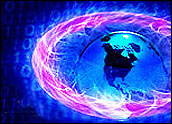

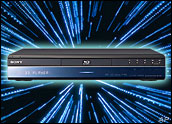
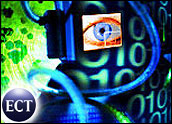


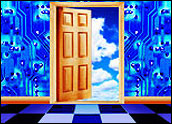

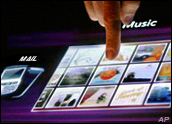











































Yes, lead, mercury and other toxins are components in electronics products. And yes, EPA says that electronics products are the largest source of lead in a landfill (which is the equivalent of EPA saying that newspapers are the largest source of groundwood in a landfill). EPA also notes that the lead does NOT leach out of the electronics products because landfills are pH neutral (about 6.8). Yes we should recycle electronics products – but let’s do it for the right reason.